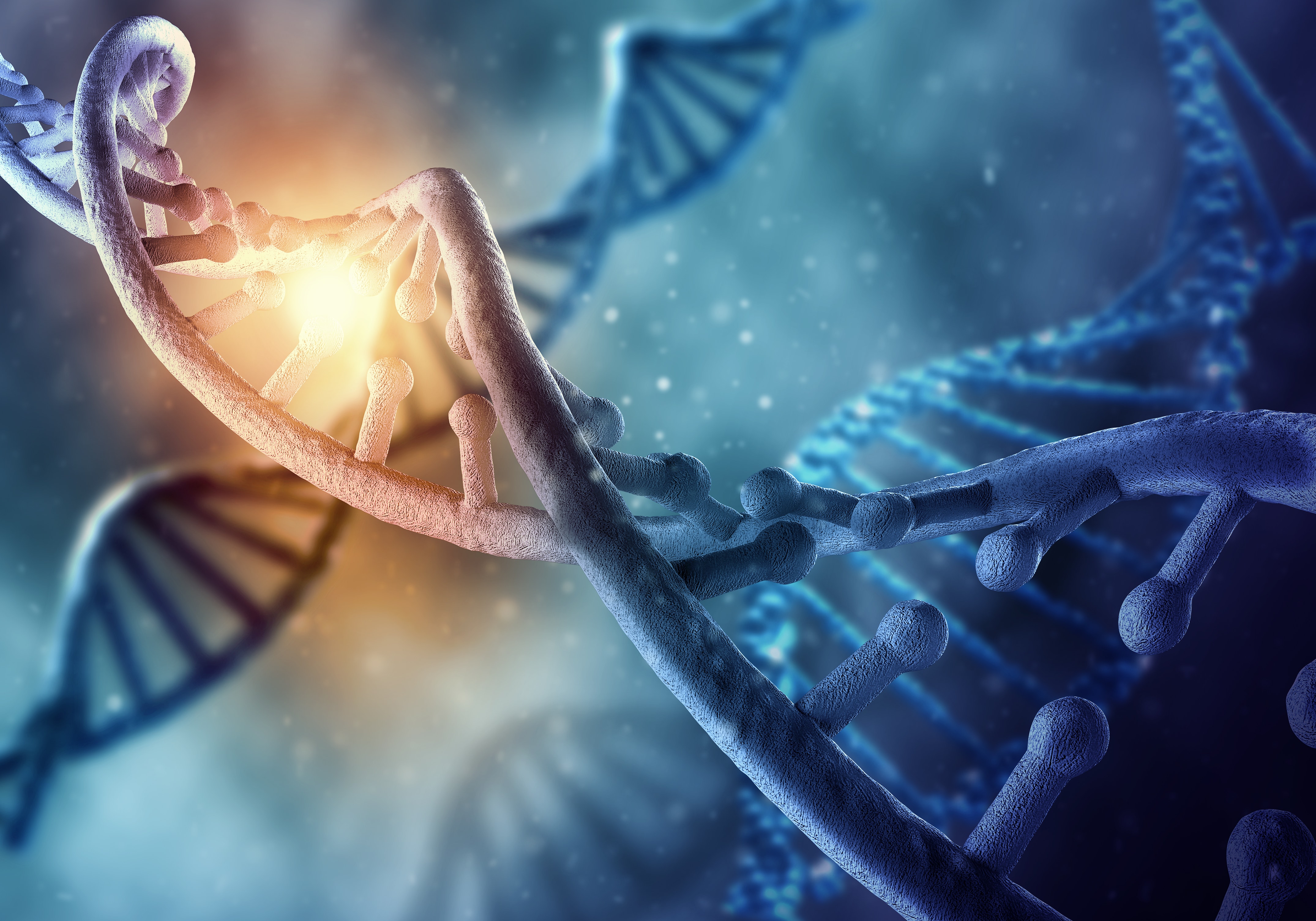The young research field of nutrigenetics sheds light into some of the dark corners of nutrition science. Genes offer an explanation for many of the different, sometimes contradictory, results of nutritional studies. Even though every human being holds the almost exact same gene sites, these act differently from person to person. This leads to an individual metabolism of the nutrients.
Every human being processes the supplied food differently on the basis of his or her genetics.
What is nutrigenetics?
Nutrigenetics describes the influence of genes on the metabolism of nutrients.
In order to understand nutrigenetics, it is best to look at the gene sites that act differently in certain people but whose common effect is very prominent – the ability to break down lactose.
There are several gene sites that determine the amount of beta-galactosidase that is synthesized. Beta-galactosidase is the enzyme needed to break down lactose. A gene site consists of a code, a sequence of 4 different “building blocks”, hundreds of times arranged in different rows. These building blocks are called nucleotides and are represented by the four letters C,G,T,A. The combination of these building blocks results in a gene site (e.g. CAAGTGACA….).
Over multiple generations, heredity leads to individual differences in these combinations. These differences are called single nucleotide polymorphisms (SNP’s). The SNP for lactose intolerance, for example, is the 13910th nucleotide in the combination, which is a different nucleotide (C) in a lactose intolerant person than in a person without lactose intolerance (T). This small change greatly reduces the amount of enzyme required to break down lactose. Further combinations of different genes with each other and additional regulatory levels are added, but the basic principle remains the same.
Based on this principle genes influence the metabolic processes in the body, including how fats, carbohydrates and proteins or micronutrients such as folic acid are processed. This results in individual processing of the various nutrients.
As a result, you may need more folic acid than your partner or the steak may be less beneficial for your health than for that of your grandmother. This is because the cholesterol in the steak could pose a greater risk of cardiovascular disease for some people than for others: A specific genetic condition could cause the enzymes necessary to process this cholesterol to be produced in a reduced quantity or quality. But do not worry, these are just trends whose effects need be considered in the long run. Knowing about them supports a diet that is adapted to one’s individual needs.
Personalised nutrition
Currently there is a trend for nutrition to move toward increased personalisation based on nutrigenetic information. This is a result of gene tests becoming more affordable and more and more people being interested in what their individual physiology looks like.
However, an important mental step is necessary to make this information relevant for yourself – the genetic test will tell you what your situation is like and as a result you can adjust to it. It is like lactose intolerance. You drink milk, maybe you still tolerate a certain amount, but at some point you get abdominal pain.
Why? Because your genetic condition allows you to ingest a small amount of lactose. You know this from experience and can adjust to it. The situation is similar with folic acid. If you know that your folic acid gene site is so pronounced that you need more folic acid, you can adjust to it and make sure to take more folic acid.
It is important to know your own genetic makeup in order to adapt your diet to your physical needs.
Everyone eats differently.
However, our genetic make-up is not a complete coincidence. Much of it is an adaptation over generations due to external influences and one of nature’s fundamental mechanisms. As an example, we now know that a part of the population of India reacts differently to meat consumption than Western Europeans or Americans.
People in India who keep a vegetarian diet as part of their faith over many generations develop a different genetic makeup than classical western “meat eaters”. The physiology of these vegetarians is designed to favor omega-6 fatty acids over omega-3 fatty acids during processing. There is a good reason for this: even if we might think that omega-6 fatty acids are “bad”, the body needs them just as much. Animal foods are one of the main sources of omega-6 fatty acids.
Over generations, the bodies of the vegetarians has adapted to one environmental condition, namely a low intake of omega-6 fatty acids compared to omega-3 fatty acids. This leads to a sensible preference of omega-6 fatty acids in order to compensate for these environmental conditions. If a person with this genetic background suddenly switched to a more meat-rich diet, the health consequences would be serious.
The field of nutrigenetics is a young field of research and many innovations are still in the making. Some genes are already known as key factors for nutrition, but more and more precise information is gradually becoming available. This enables us to look at the effects of genetics in a more comprehensible and more measurable way. Still, what we already know in this field is well documented and already offers significant added value.
We live in times where self-tracking, personalisation of health products and a focus on oneself are becoming increasingly popular and common. Therefore, the availability of genetic information is highly likely to have a central benefit for many health issues in the future. In a nutshell, knowing your own genetic makeup leads to a deeper knowledge of yourself.
This focus on nutrition research enables us to combat the increased alienation from our food. The highly simplified image of pure energy intake has been replaced by idealized forms of nutrition, according to the motto “You are what you eat”.
However, this motto should be expanded even further to read: “You are what you eat when you eat what you are”.



